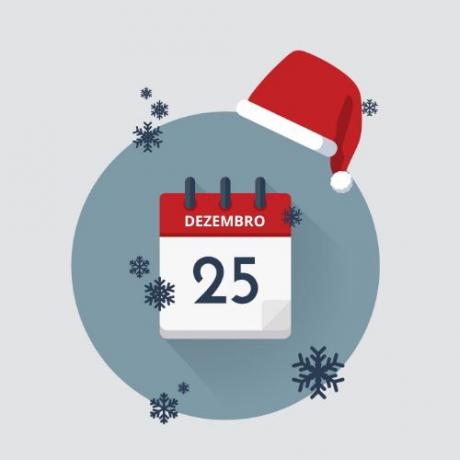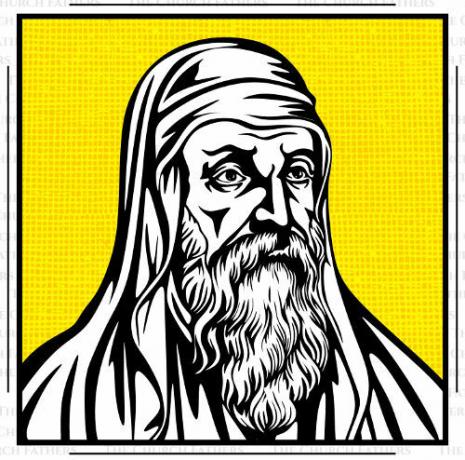O Christmas it is one of the most popular celebrations in our culture, being marked by festivities present throughout Brazil. Celebrated on December 25th, Christmas is a Christian festival that recalls the birth of Jesus Christ, considered the Son of God in Christian belief. Despite this, the festival also has a great weight in secular (non-religious) culture, being considered a moment of brotherhood.
The question many people ask is: why do we celebrate Christmas on December 25th? Is there historical evidence to support when Jesus was born? Have other dates been considered to commemorate the birth of Christ? These are the questions that we will explore in this text.

Does the Bible say the date of Christ's birth?
No, the bible doesn't mention anything about the date Christ was born and does not even hint at when this might have happened. All the controversy about this date exists precisely because the Bible does not mention anything about it. Therefore, it remains for historians and archaeologists to investigate all traces of the
old world to find clues that allow them to support some answer. Anyway, apart from the Bible, there is no ancient document that gives any clues about the day Jesus was born.Read too:Learn about the story of the wise men mentioned in the Bible
Was Jesus Christ born on December 25th?

We don't know if Jesus was born on that day, but the most widely accepted theory today suggests that this was not the case. Thus, the choice of December 25 would have been part of a deliberate action by the Catholic Church. Let's understand the context of the Christian church in Antiquity to identify when and how Christmas was consolidated in December.
What we currently know is that, until the second century, Christians did not celebrate the birth of Christ at all. There are records of one of the big names in the patristic (Christian philosophy of antiquity), Origins of Alexandria, which demonstrate his contempt for deities' birthday celebrations, as he considered them a pagan practice.
Do not stop now... There's more after the advertising ;)
Anyway, this subject began to gain notoriety from the second century, when philosophers and Christians of the period began to debate and propose different dates for the birth of Jesus. Another great name in patristics, Clement of Alexandria, left a record about the different dates that were proposed in his time (he lived in the 2nd and 3rd centuries).
Clement of Alexandria informs that different theologians and philosophers of the time believed that Jesus was born on dates such as: 20 of May, March 21st, April 15th, April 21st etc. Some historians say that December 25th began to be speculated through the writings of Sextus Julius Africanus, a third-century Roman historian, who supposedly theorized this date as the day of Jesus' birth.
Accessalso: Understand why Christians don't eat meat on Good Friday
Why was Christmas created?

There is no certainty in the answers to this question either, but the most widely accepted theory currently suggests that December 25th was consolidated as the date of Christ's birth between the 3rd and 4th centuries and that it was a reaction of the Catholic Church. This reaction was against pagan festivals that took place at that time and were very popular.
The first was the celebration of the anniversary of the invincible sun, a party created in 274 by the Emperor Aurelian. Along with this party, the birthday of Miter, a very popular Persian god in Roman lands. There was also the saturnalia, in commemoration of Saturn, which happened during the solstice winter (around December 21st).
Placing a Christian celebration in a period that commemorated two pagan festivals was a way for the Church to weaken pagan religions and strengthen Christianity, winning over believers for the Church. Some scholars say that the date was made official as the birth of Christ through the Pope Julius I, in 350.
The first written mention of Christmas that is recorded is the 354 Chronograph, calendar written by Fury Dionysius Philocalus. From then on, the festival would have been spread throughout Christendom during Antiquity, being held in Cappadocia, from 370 onwards; in Constantinople, from 380; in Antioch from 386 onwards; and in Alexandria from 432 onwards.
The theory that the consolidation of Christmas on December 25th as a response to pagan festivities is in the However, questioned by many, as it was first mentioned only in the century XII. Other criticisms refer to the fact that the practice of Christians to assimilate pagan elements as a form of Christianization was only consolidated from the seventh century.
By L.do Daniel Neves
History teacher
Would you like to reference this text in a school or academic work? Look:
SILVA, Daniel Neves. "Why do we celebrate Christmas on December 25th?"; Brazil School. Available in: https://brasilescola.uol.com.br/natal/por-que-comemoramos-natal-no-dia-25-dezembro.htm. Accessed on June 27, 2021.



